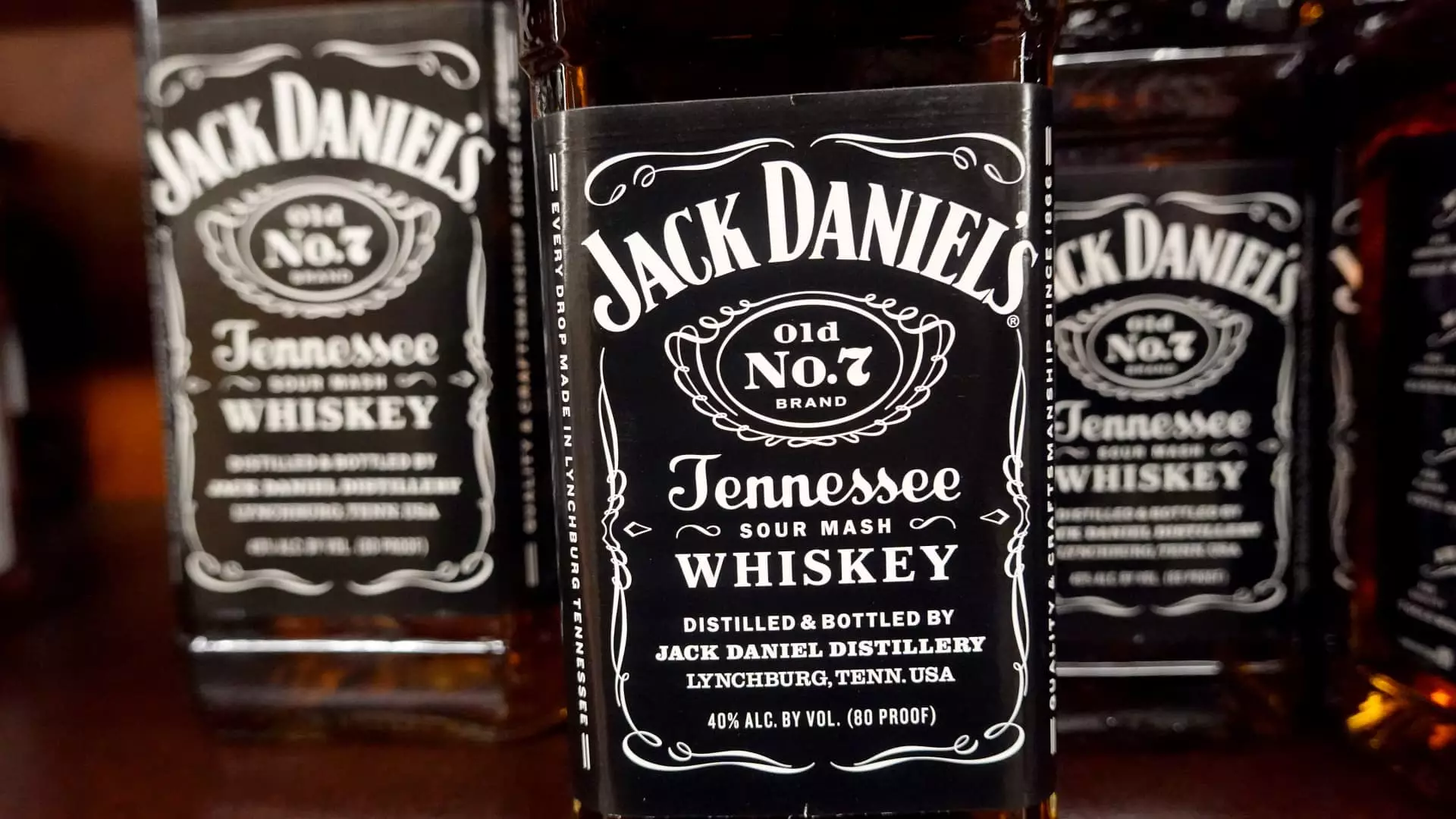The recent plunge of over 18% in Brown-Forman’s stock value comes as a stark reminder that even the most illustrious brands can falter in turbulent times. As a bastion of the whiskey industry, the parent company of Jack Daniel’s has endured a reality check with its fourth-quarter fiscal results, which were disheartening to say the least. A revenue of $894 million, falling short of analyst expectations by a staggering $73 million, raises questions not only about the company’s management strategies but also about the very landscape in which it competes.
CEO Lawson Whiting’s assertion that significant progress has been made in an “exceptionally challenging macroeconomic environment” sounds more like wishful thinking than an accounting of honest performance. If anything, this statement serves to obfuscate the harsh reality that Brown-Forman’s operational aspirations are drifting farther away from current market dynamics. The continued devaluation of discretionary spending on alcohol, particularly amid an inflation-riddled economy, does not bode well for the company’s predictive models.
A Year of Declining Sales
Examining the numbers from fiscal year 2025, the decline in net income by an alarming 45% raises a critical alarm bell about Brown-Forman’s strategic positioning. While whiskey remains a staple product, stagnation in this category alongside a stark 14% drop in tequila sales is troubling. The glaring failure of its ready-to-drink segment, down 6%, reinforces the notion that diversification efforts are falling flat. The company’s attempt to tap into broader beverage markets can no longer be viewed as an unmitigated success. Instead, it reflects a desperate scramble to maintain relevance as consumer preferences shift.
The forecast for fiscal 2026 offers little reassurance, hinting at further declines across key performance metrics. The assertion that the operating environment will be “challenging” reveals a lack of confidence that pervades the company. Analysts’ comments regarding potential tariff impacts set against the backdrop of a recession raise the stakes even higher, indicating that Brown-Forman may be sliding toward an existential crisis in leadership. This smacks of a company that finds itself increasingly outmaneuvered by more adaptive competitors.
The Tariff Dilemma and Its Aftermath
The company cannot escape the shadow of tariffs imposed under previous administrative policies, a driving force behind their decline. The inability to quantify these impacts reflects a significant gap in strategic foresight or an unwillingness to engage meaningfully with policy developments that directly threaten their bottom line. The research from Bernstein shows that tariff-induced pressures could cut into their earnings by an estimated 10%—a staggering figure for an enterprise already facing myriad challenges.
Additionally, the reaction from Canadian retailers removing Jack Daniel’s products signals broader repercussions of this tariff environment. This situation transcends mere financial metrics; it evolves into a public relations nightmare, affecting customer loyalty and brand esteem. As the competition—such as Constellation Brands—maneuvers more deftly, Brown-Forman could find itself fighting not just economic headwinds but also a narrative that may tarnish its storied legacy.
In the ever-shifting sands of the beverage market, it cannot be understated how essential strong leadership, innovative foresight, and adaptability are. Ultimately, the question remains: can Brown-Forman navigate these choppy waters, or will it become a casualty of its flawed strategic direction?

